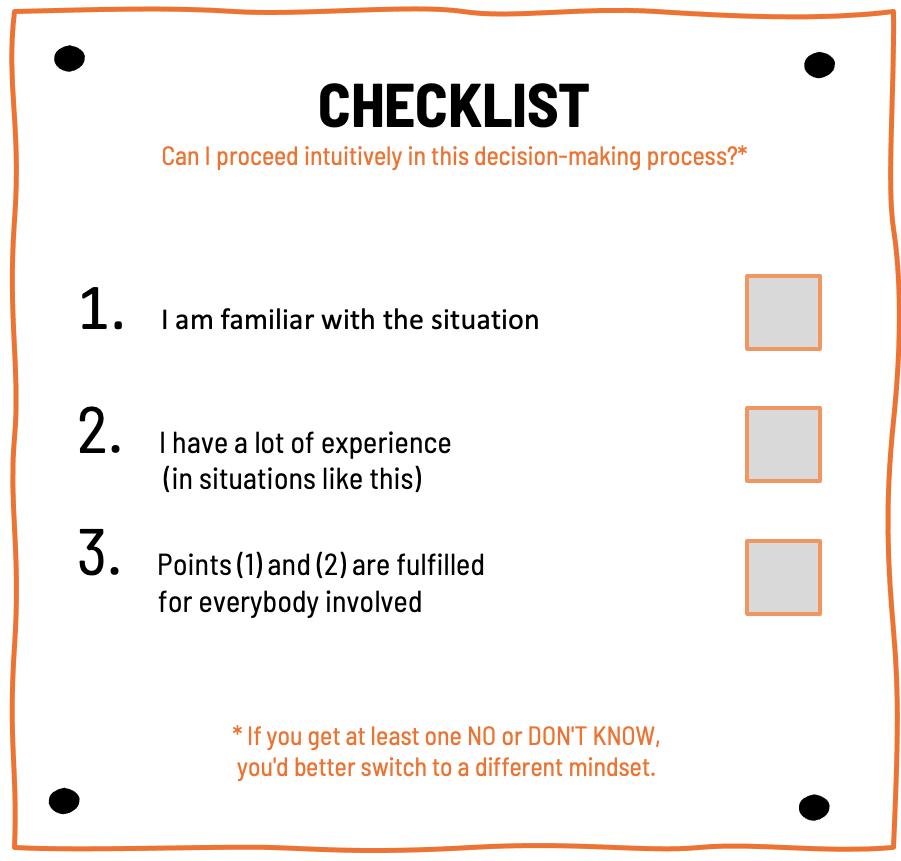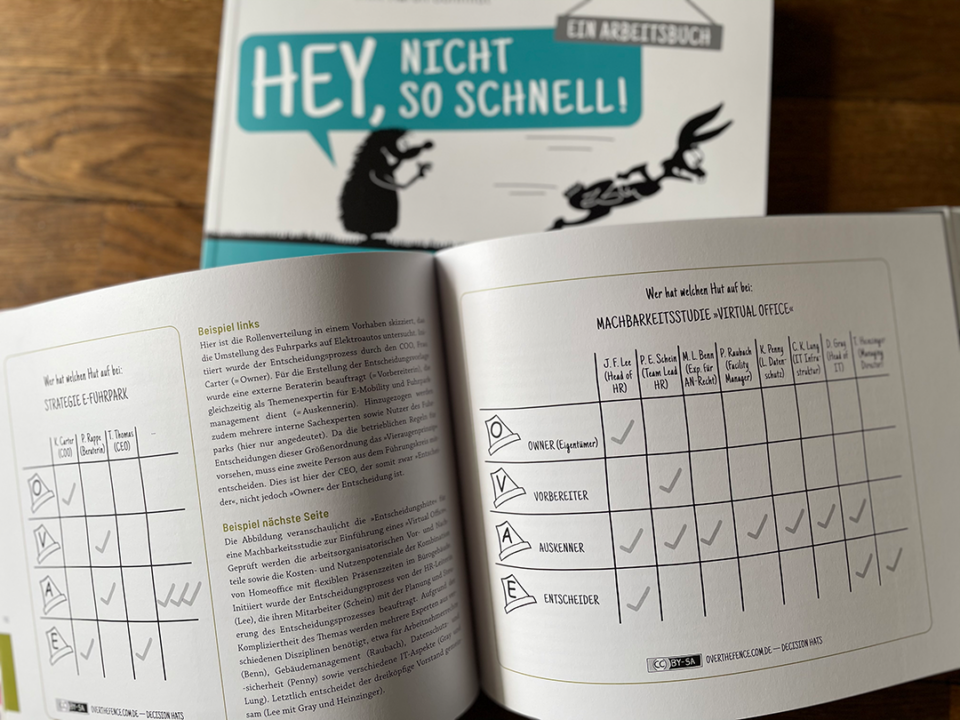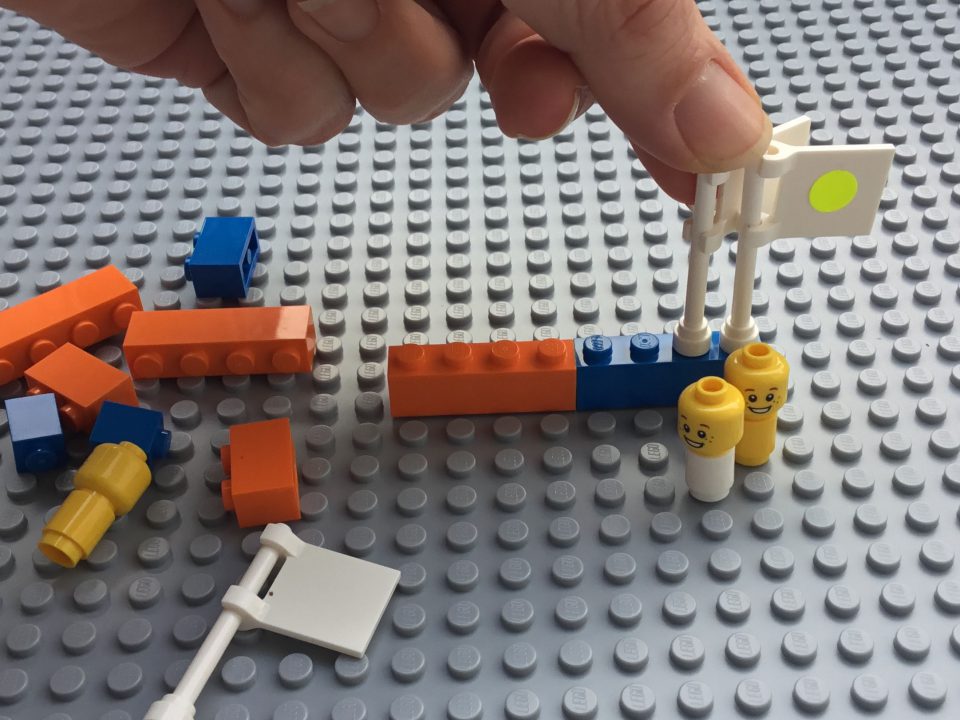In organizational decision-making: When can you trust your intuition?
Can you rely on your intuition when making important decisions in your company? Or to put it another way: is intuition good or bad when it comes to decisions that affect employee's lives and the fate of a company?
For Gerd Gigerenzer, Professor of Psychology and former Director of a Max Planck Institute, intuition means "intelligence of the unconscious", which is actually a good thing. However, another psychologist and Nobel laureate, Daniel Kahneman, describes intuition as “fast thinking” that pushes us into selective perception, thus blocking our intellect. That's pretty bad when it comes to making business decisions.
This leads us to the question: which of the two clever guys is right?
Both are right!
Intuition and gut decisions are the same: both happen unconsciously and emotionally
Both correct? That sounds pretty illogical. But it is true; you just need to know a little more about "intuition".
Let's start with their "aliases" - because intuition has many of them: intuition aka common sense aka gut feeling aka matter of the heart aka intelligence of the unconscious aka fast thinking, from a scientific point of view - when it comes to making decisions - it's all the same
The following applies to all of the above:
- Intuition is unconscious
- Intuition is permanent (cannot be turned off)
- Intuition is selective, based on personal experience
- Intuition can be manipulated by third parties
- Intuition is biased
- Intuition is emotional
To sum it up, "intuition" is permanent, biased, selective thinking that emotionalizes us ... and can also be manipulated by third parties without us being aware of it.
Intuitively we can be right - or wrong ... We should find out BEFORE we decide.
Everyone has a different intuition. Therefore, intuition is the mother of all misunderstandings.
In addition, everyone perceives things intuitively differently, i.e. everyone filters different information and thus unconsciously comes to different conclusions. This is especially true for different types of expertise and different levels of experience, as is common in our highly specialized world. Because different experts naturally have different perspectives, and different perspectives naturally lead to different conclusions. However, if these conclusions remain unconscious, it is an unspoken misunderstanding. Or even worse: It is the illusion of a common understanding! This lack of shared understanding is one of the main reasons we struggle with decision-making in organizations. This illusion of understanding is a cause of heated meetings and unproductive discussions.
Intuition CAN be a good guide - if you use it on purpose.
Now that doesn't sound like intuition is a reliable guide, does it? That's right, because intuitive decision-making in complex organizational issues involves numerous risks. However, intuition CAN be a good guide.
According to Daniel Kahneman, this is the case
1) If you find yourself in a known, very familiar situation (note: intuition only leads to reliably good results in what is very well known - in absolute routine),
2) When one can draw on hundreds and thousands of lessons learned in similar situations (note: good intuition requires mastery - gained through practice, practice, practice),
3) If you act alone or - if in a group - the conditions (1) and (2) are also fulfilled for everyone else.
Find out if you can think intuitively or better shift to a different mindset.

Caution! Don't answer the checklist intuitively ;)
Only when all three conditions are met is intuition synonymous with "unconscious competence". If only one of the three points is not fulfilled, there is a risk of "unconscious incompetence" with correspondingly negative consequences. See Noel Burch's 4-step competency model.
Last but not least, a very important point: It is not at all easy to correctly assess the three points mentioned above in a concrete challenge – for example at the beginning of a decision-making process. Because here, too, we act intuitively - and tend to overestimate our unconscious assumptions. This innate naivety, which is part of every human being, can lead us to the following misjudgments:
1) The current situation is only apparently known (in a complex world, things are often different than they appear at first glance).
2) You are not as experienced as you think you are (have you achieved any real mastery in an area - like let's say Bruce Lee?).
3) You believe others have a similar perception (just because you know a situation very well, that doesn't necessarily apply to everyone else).
The good news is that you don't have to have Jedi Master Yoda's powers to avoid these misconceptions. On our website and in our books, we introduce free tools that will give you the "power of good decision-making." With these tools, you make the best out of your intuition - especially under the usual pressure of time and action.
Picture sources:
- Yoda (title image): Fotolia (c)
- Checklist: own creation
Author: Frank Habermann




